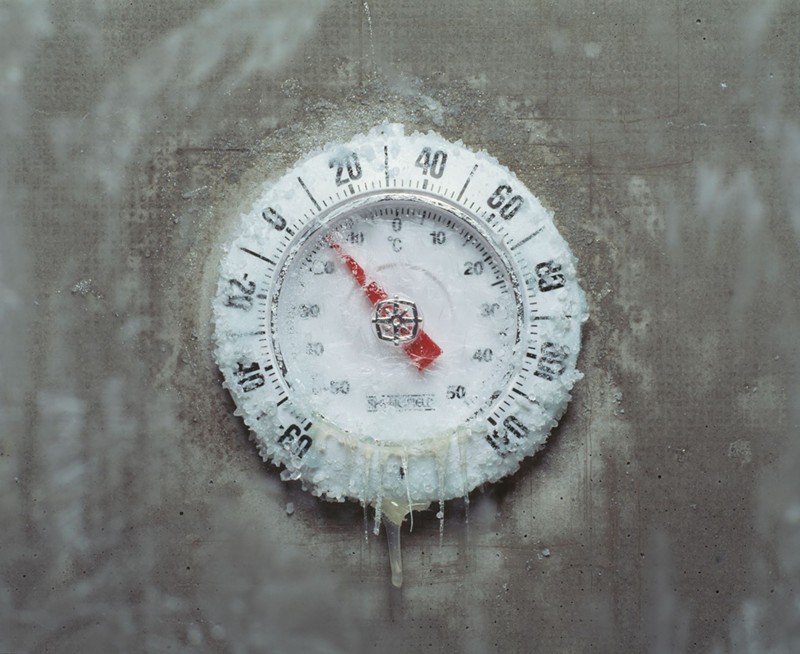The arctic blast that swept through Denver over the Martin Luther King Jr. holiday weekend had many furnaces and boilers working overtime as temperatures dropped below zero.
Though most households' pipes are out of danger and the roads and sidewalks have nearly returned to normal, one impact of the cold is still lying in wait: Xcel Energy bills. After last year’s record-high bills fueled by the rising cost of natural gas, people could get hit with big bills again this year thanks to the dropping temperatures.
But according to Xcel, the swing won’t be as drastic as last winter’s because the wholesale price of natural gas isn’t as high.
“The impact of higher natural gas prices this past weekend on the average customer natural gas bill is anticipated to be roughly $15 spread over twelve months, or roughly $1.25 per month, to minimize bill impacts,” the utility says through a spokesperson.
For residential customers specifically, Xcel anticipates the impact will be even lower — totaling just $1 over three months. However, bills could still balloon based on customer usage: When it's colder and people use more heat, their bills inevitably rise no matter the price of natural gas.
In fact, on January 12, Xcel sent an email to customers warning them of rising natural gas prices while also reminding them that turning down thermostats is the most effective way to curb costs.
“While wholesale natural gas price increases primarily affect the bills of natural gas customers, we also purchase natural gas to generate electricity, so you may see some savings by conserving electricity for the next few days,” Xcel noted in the email.
Xcel doesn’t make any additional profit when natural gas prices rise; it passes the actual commodity price of gas on to customers on their bills. Every three months, the company submits commodity cost adjustments based on how much it spent on natural gas to the Colorado Public Utilities Commission — which regulates investor-owned utilities in the state.
“While Colorado moves out of the deep freeze, we know customers are anticipating their next energy bill which may reflect increased energy and heating use,” Xcel adds. “The largest portion of customer bills in the winter heating season is due to the wholesale price of natural gas, which is determined by global supply and demand, and how much customers use for heat in cold weather.”
Residential customers currently pay $0.3172 per therm of natural gas used, under gas rate adjustments approved by the PUC in 2022; they pay an additional $0.4255 per therm from January to March to account for the commodity price of natural gas over the previous few months. Because the average resident uses 106.3 therms per month, Xcel estimates the average monthly gas bill will be $100.02.
That is about $40 lower than the average residential gas bill of $139.13 per month from January to March 2023. For small businesses, the average bill is anticipated to be $429.46 per month for the first three months of 2024, compared to $615.91 last year.
“Natural gas is also used as fuel to generate electricity at natural gas plants, which affects electric rates in addition to natural gas rates,” the utility explains, so Xcel's electricity customers could feel impacts, too.
Using a diverse energy mix that includes renewable resources helps minimize the effect of natural gas prices, the company suggests. Xcel also attempts to protect against market fluctuations by purchasing natural gas when it’s less expensive and saving it for the cold season, as well as purchasing financial hedges, “which act like insurance to protect our customers from season-long wholesale price changes,” according to the utility.
But the best-laid plans can always be foiled by Mother Nature: On January 18, another cold front was already moving in.
[
{
"name": "Air - MediumRectangle - Inline Content - Mobile Display Size",
"component": "12017618",
"insertPoint": "2",
"requiredCountToDisplay": "2",
"watchElement": ".fdn-content-body",
"astAdList": [
{
"adType": "rectangle",
"displayTargets": "mobile"
}
]
},{
"name": "Editor Picks",
"component": "17242653",
"insertPoint": "4",
"requiredCountToDisplay": "1",
"watchElement": ".fdn-content-body",
"astAdList": [
{
"adType": "rectangle",
"displayTargets": "desktop|tablet"
},{
"adType": "rectangle",
"displayTargets": "desktop|tablet|mobile"
}
]
},{
"name": "Inline Links",
"component": "18838239",
"insertPoint": "8th",
"startingPoint": 8,
"requiredCountToDisplay": "7",
"maxInsertions": 25
},{
"name": "Air - MediumRectangle - Combo - Inline Content",
"component": "17261320",
"insertPoint": "8th",
"startingPoint": 8,
"requiredCountToDisplay": "7",
"maxInsertions": 25,
"watchElement": ".fdn-content-body",
"astAdList": [
{
"adType": "rectangle",
"displayTargets": "desktop|tablet"
},{
"adType": "rectangle",
"displayTargets": "desktop|tablet|mobile"
}
]
},{
"name": "Inline Links",
"component": "18838239",
"insertPoint": "8th",
"startingPoint": 12,
"requiredCountToDisplay": "11",
"maxInsertions": 25
},{
"name": "Air - Leaderboard Tower - Combo - Inline Content",
"component": "17261321",
"insertPoint": "8th",
"startingPoint": 12,
"requiredCountToDisplay": "11",
"maxInsertions": 25,
"watchElement": ".fdn-content-body",
"astAdList": [
{
"adType": "leaderboardInlineContent",
"displayTargets": "desktop|tablet"
},{
"adType": "tower",
"displayTargets": "mobile"
}
]
}
]











